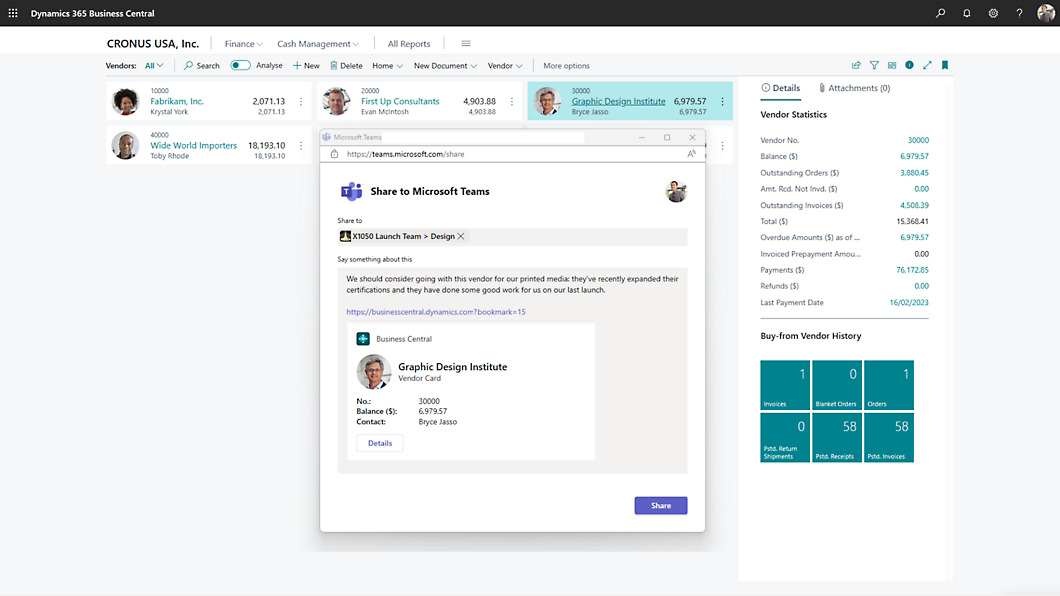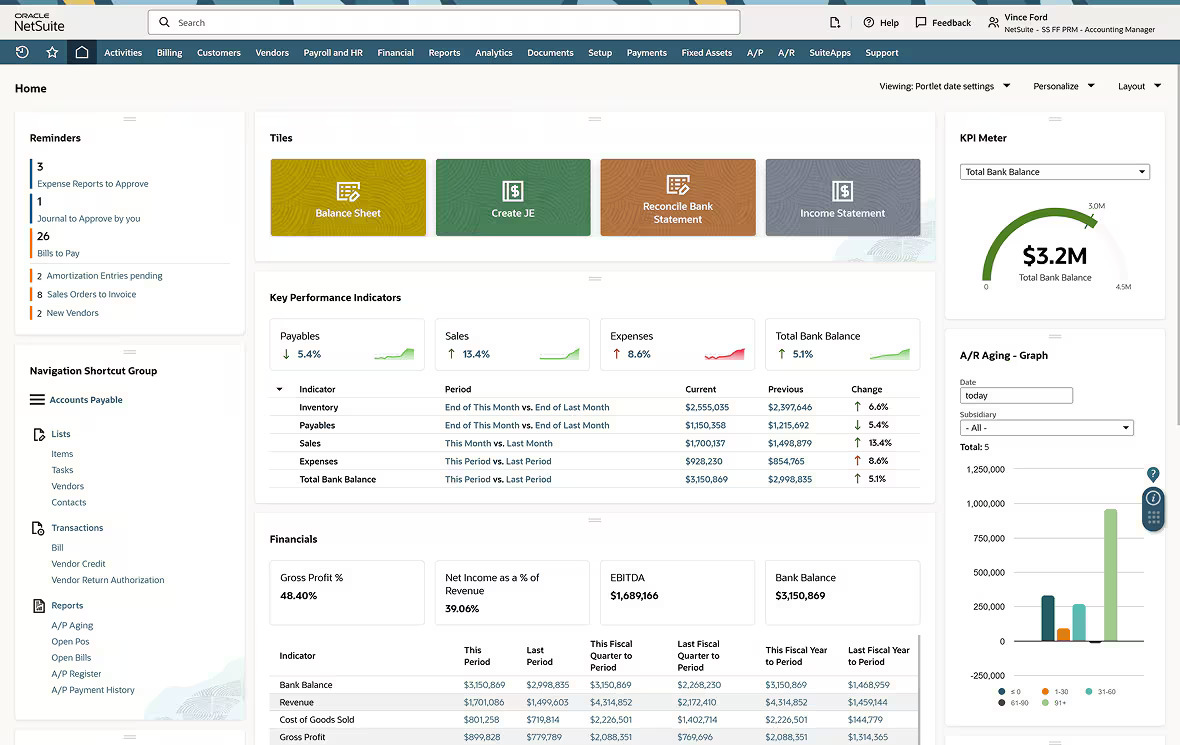Business Central vs NetSuite: Which ERP Wins for SMBs in 2025?
In 2025, businesses seeking agility, automation, and accurate data-driven decisions are turning to modern ERP systems. But with so many options available, two names rise to the top: Microsoft Dynamics 365 Business Central and Oracle NetSuite.
If you’re at a crossroads between these two ERP giants, this comprehensive comparison guide will help you make the right choice—whether you’re an SME on the rise or an established mid-market company planning global expansion.
Quick Comparison: Business Central vs NetSuite
| Feature | Business Central | Oracle NetSuite |
|---|---|---|
| Target Market | SMBs, mid-market | Mid to large enterprises |
| Pricing | £57.50–£82.20/user/month* | £76+/user/month + £770 base fee |
| Deployment | Cloud, on-prem, hybrid | Cloud-only |
| UI | Familiar Microsoft look | Functional, less intuitive |
| AI & Automation | Microsoft Copilot, Power Automate | SuiteFlow, SuiteAnalytics |
| Customisation | Extensions, AL, Power Platform | SuiteScript, SuiteCloud |
| Global Capability | Moderate (localization packs) | Strong (multi-currency, multi-entity) |
Pricing note: Microsoft is increasing Business Central pricing effective October 1, 2025. Existing customers can lock in current pricing by renewing contracts before September 30, 2025. Contact us to learn more about the upcoming price change and enhanced value in our dedicated pricing update.
Platform Overview
Microsoft Dynamics 365 Business Central

D365 Business Central is a cloud-first ERP solution designed for growing businesses. Its strength lies in deep integration with Microsoft tools like Outlook, Excel, and Teams, making it a natural choice for businesses already using Microsoft 365.
Key Modules:
- Financial Management
- Supply Chain and Inventory
- Sales and Customer Service
- Project Management
- Manufacturing (light)
- Reporting and Power BI Integration
- AI-driven capabilities via Copilot
Oracle NetSuite

NetSuite is a mature, all-in-one ERP designed for fast-growing and global businesses. It delivers deep functionality across multiple industries and supports multinational operations.
Key Modules:
- Core Finance
- Advanced Inventory & Demand Planning
- Supply Chain Management
- Manufacturing & Assembly
- CRM & Ecommerce
- Global Business Management (OneWorld)
Feature-by-Feature Breakdown
1. Financial Management
Business Central: Full suite including general ledger, cash flow forecasting, VAT returns, and bank reconciliation. Embedded AI via Copilot assists in predicting late payments and automating finance tasks.
NetSuite: Central ledger, advanced budgeting, tax compliance, and multi-currency support. NetSuite IPM helps with performance management.
Verdict: Tie – NetSuite wins on global consolidation; Business Central excels in automation and usability.
2. Supply Chain & Inventory
Business Central: Real-time stock visibility, purchase orders, warehouse transfers, lot tracking. Integrated with manufacturing and sales.
NetSuite: Advanced features like automated replenishment, bin management, demand planning.
Verdict: NetSuite leads for advanced planning; BC is simpler and ideal for SMBs.
3. Sales, CRM & Customer Service
Business Central + Dynamics 365 Sales: Powerful CRM tools, integrated communication via Teams, AI-based customer insights.
NetSuite CRM: Basic CRM with sales force automation, marketing campaigns, and case management.
Verdict: Business Central wins when paired with Dynamics Sales for its Microsoft ecosystem advantage.
4. AI & Automation
Business Central: Microsoft Copilot brings AI into day-to-day ERP—auto-generated descriptions, predictive cash flow, invoice matching. Power Automate allows integration with 500+ apps.
NetSuite: SuiteFlow for no-code automation, SuiteScript for custom workflows, AI for anomaly detection.
Verdict: Business Central offers more AI out-of-the-box; NetSuite requires more setup.
5. User Experience
Business Central: Role-based dashboards, familiar interface like Outlook/Excel, guided tasks.
NetSuite: Comprehensive but dated UI, requires steeper learning curve.
Verdict: Business Central is more intuitive and easier to onboard teams.
6. Deployment Options
Business Central: Flexible—choose cloud, on-premise, or hybrid.
NetSuite: Only cloud-based, hosted by Oracle.
Verdict: Business Central offers more control and deployment flexibility.
7. Global Capabilities
Business Central: Localization packs and multi-currency support across 140+ countries.
NetSuite: Strong global ERP with built-in multi-language, multi-currency, and intercompany accounting.
Verdict: NetSuite is better suited for global enterprises.
8. Reporting & Analytics
Business Central: Embedded Power BI, Excel integration, real-time reporting, Copilot-assisted insights.
NetSuite: SuiteAnalytics, saved searches, embedded KPIs and dashboards.
Verdict: Business Central edges ahead with more advanced, real-time analytics via Power BI.
9. Pricing & Value
Business Central: Starts at £57.50/user/month*. No base fee. Transparent. Scales affordably.
NetSuite: Higher cost. £770 base platform + per user cost. Add-ons increase TCO.
Verdict: Business Central is more cost-effective for SMBs.
Pricing note: Microsoft is increasing Business Central pricing effective October 1, 2025. Existing customers can lock in current pricing by renewing contracts before September 30, 2025.
Which ERP is Right for You? (Decision Matrix)
| Business Needs | Recommended ERP |
| UK-based SMB using Microsoft 365 | Business Central |
| Multinational firm with subsidiaries | NetSuite |
| Need for tight Microsoft 365 integration | Business Central |
| Complex manufacturing & planning | NetSuite |
| Budget-conscious startup | Business Central |
| Seeking global eCommerce scaling | NetSuite |
Expert Insight: Why We Recommend Business Central for SMBs
At Dynamics Square, we’ve implemented both solutions. Most SMBs benefit more from Business Central due to:
- Native Microsoft 365 experience
- Faster adoption rates
- AI productivity gains via Copilot
- Flexible deployment
- Lower total cost of ownership
For example, A. Perry Ltd, a century-old business, future-proofed operations using Business Central integrated with eCommerce platforms, warehouse automation, and AI-enabled insights.
Final Verdict
If you're a growing business seeking affordability, usability, and deep integration with the Microsoft ecosystem, Microsoft Dynamics 365 Business Central is the clear choice in 2025.
For larger, globally distributed enterprises with complex intercompany structures, Oracle NetSuite may be the better fit—at a premium.
The ERP decision is foundational. Don’t guess—scope your business needs, talk to experts, and request demos.
Talk to a Dynamics Square Expert Today
Still weighing your ERP options? Let our certified consultants guide you through the process.
Book a free, no-obligation consultation to see Business Central in action—and determine if it's the right fit for your business growth.